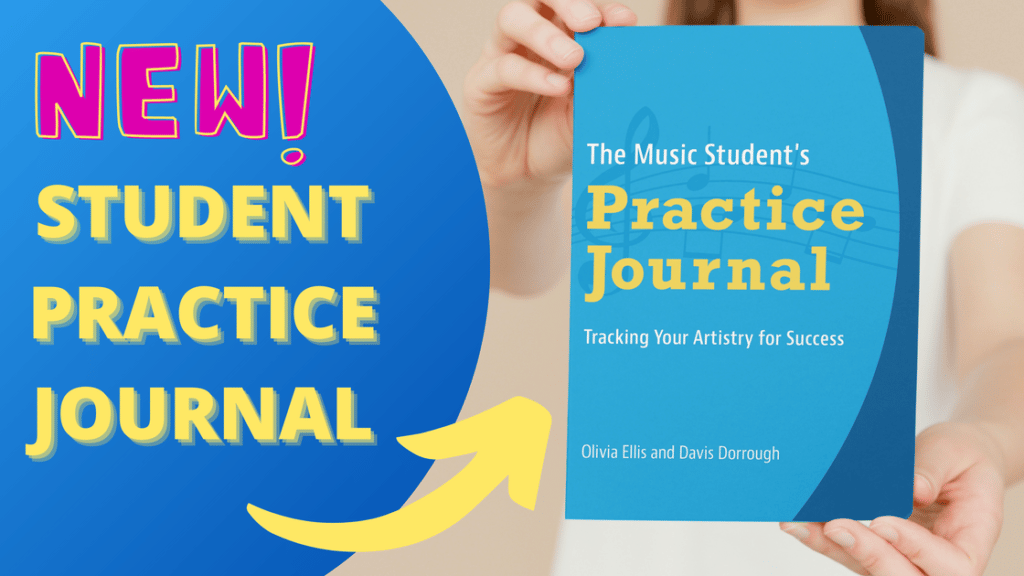The Myth: You must practice everything on your practice list every day, or you will forget what you have learned and progress will come to a halt.
The Truth: Research shows that timing the review of information is more important than daily repetition. Using thoughtful “spaced repetition” can get better results with less time spent on practice.
We often think that learning or memorizing new information is a matter of constant repetition on a daily basis. In fact, sometimes musicians can fall into the trap of practicing a section too many times in one sitting, and this can instead cause a regression in learning, especially when repetitions become sloppy and unfocused. Our brains remember all repetitions, whether they were perfect or not. Therefore, it is more important to focus on a few high-quality repetitions in order to consistently program the correct information.
Furthermore, something called spaced repetition can help you learn more while spending less time reviewing information. The research has shown that you should revisit the material you are learning right around the time you are about to forget it. As a result, the additional effort needed to recall the information further stimulates long-term memory.
Contestants on game shows such as Jeopardy and other elite memory competitions often use this technique when they are learning vast quantities of information. There simply aren’t enough hours in the day to review everything on a constant basis. Instead, these individuals carefully select the right thing to review at the right time.
How does this apply to piano practice?
Technique Exercises
In order to reinforce more skills more frequently, you may choose to design a rotating technique plan that reviews information on different days. This is similar to the way a lot of people choose to work different muscle groups at the gym on different days. Having variety can stimulate more learning by keeping the process fresh, and by rotating exercises, you promote the processing of more skills in your brain simultaneously. This creates a healthy well-rounded diet for your piano technique. A technique schedule for an intermediate pianist might look like the following:
Monday: major scales, arpeggios, and a set of technical exercises/etudes
Tuesday: harmonic minor scales, arpeggios, and an alternate set of technical exercises/etudes
Wednesday: chromatic scale, major chords in all inversions, and major cadences.
Thursday: review the most challenging major and minor scales and arpeggios. Play a few measures of each technical exercise/etude instead of to completion.
Friday: Review a portion of each technical skill currently on your practice list, giving extra emphasis to skills most in need of review.
This plan does not need to be rigid and can regularly change as your skills evolve. The goal should always be to decide what needs the most attention at every practice session, while also deciding what needs less of your attention.
Repertoire
Identifying the hardest spots in repertoire and practicing those first is something we are often taught, but not much is said about how to space repetitions of difficult sections in comparison to the spacing of easier sections.
In the case of preparing a large amount of music for a performance, it can be helpful for us to identify which sections we are able to play fluently almost immediately versus those which feel insurmountable.
Following the premise of spaced repetition, we could space the easiest sections up to a week or more apart in the early stages of learning while difficult sections could receive daily or every-other-day repetition. Staggering difficult sections on alternating days could also be an efficient way to learn a great deal of music concurrently.
Once the program is in its final stages, more frequent repetition of all sections and full-program play-throughs will be more beneficial. However, some form of spaced repetition can always exist to get more done in less time.
Long-term memory maintenance
Have you ever heard someone say, “I knew that piece of music so well but now I can’t remember any of it.” Chances are this person could have maintained the piece in their long-term repertoire if they had just revisited the piece once every few months for a bit of review. Often the material comes back quickly after a few days and is more solidified in our memory after the second, third, and fourth relearning, etc.
Similar to our piano technique plan, we can also rotate repertoire in a more long-term spaced repetition sequence so that we are returning to old music at regular intervals for review. By no means do we need to play copious amounts of music every day. We can have a vastly larger catalog of music in our memory bank if we are strategically spacing out the recycling of previously learned repertoire.
In addition to the new music you are learning, consider reviewing a piece every week or two. The experience can be rewarding in two ways: 1. We get to relive the fond memories associated with past performances and 2. We gain confidence and pleasure in knowing that we have a vast collection of pieces at our fingertips.
For those of us who are teachers, we can encourage our students to do the same. Try to extinguish the idea that once a piece is learned it is time to say goodbye forever. Allowing students to share old repertoire both in lessons and performances can be a terrific way to continue reinforcing a wide array of pianistic skills.
In summary, the next time you sit down for a practice session, consider making out a plan for the week that will allow you to revisit your pieces as well as your technical exercises a few times during the week—but not all sections every day. Mark the score or write down high-priority difficult passages and increase the frequency of repetition on those areas while giving considerably less focus to the already playable parts. You may be surprised at what is possible to be accomplished in the amount of time you have to practice.
And finally, always re-evaluate and tweak your practice sessions. The strategies we use to practice should always be fluid and subject to change as we progress into different stages of learning. Last week’s plan will almost never be this week’s plan if you are maintaining a careful awareness of the learning process each week.

A passionate music educator, presenter, and author, Davis spends his days empowering music students through creative teaching and music education resources. He is a frequent presenter at conferences and workshops across the nation and is co-author of the Easy Piano Lead Sheets and Chord Charts series. He currently lives in Cincinnati, Ohio.



